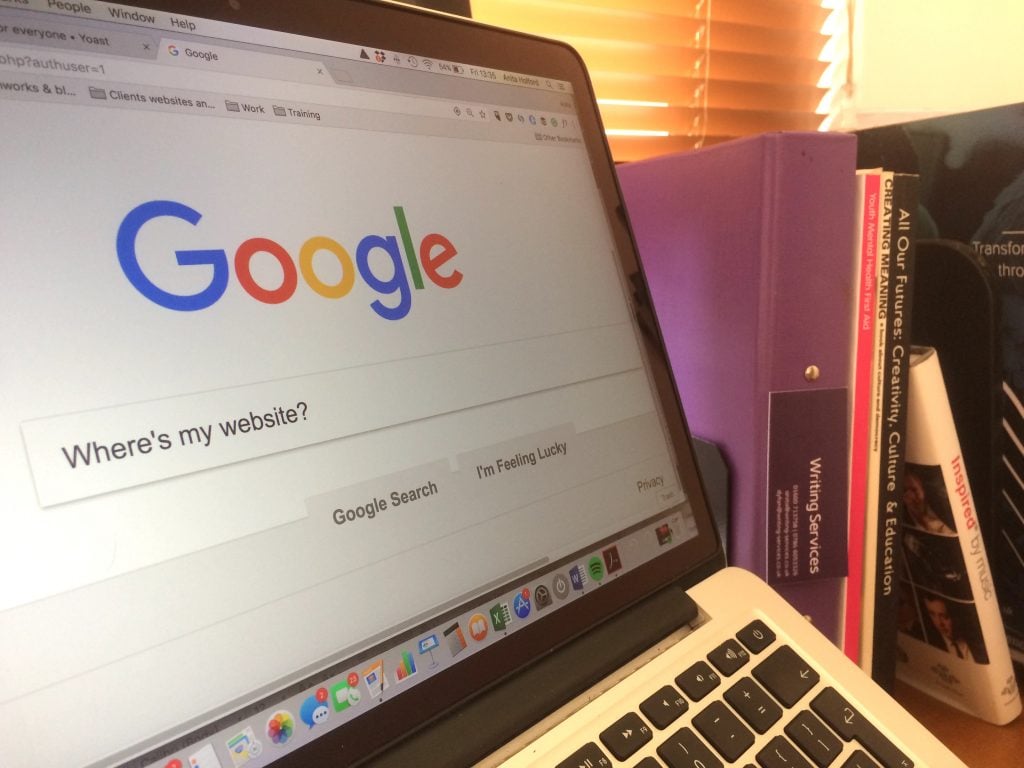
How to get more traffic to your website and improve your Google ranking
If you’re a music organisation, arts organisation or small charity, you may be communicating well with specific audiences. But how do you grow your audience and get greater engagement and sales, participation and support on a small budget? One important and often overlooked tactic is to make sure every page on your site is ‘optimised’ for search engines. In other words, ensuring your site appears when people ‘Google’ for answers to questions or problems you could help with.
There are lots of companies that sell SEO (search engine optimisation) services – but it is possible to do the basics yourself.
First, a bit of background – how do people find your website?
The ways that people reach your site fall into two categories:
1. Direct traffic – ie by typing in or clicking on the url as a result of your own or others’ marketing materials – social media, direct mail letters, brochures, posters etc
2. Organic traffic – by searching on Google or other search engines for answers to questions/solutions to problems
Organic traffic is FREE and powerful, and you can use it to your advantage, through SEO. The key to this is keywords.
What are keywords and why are they so important?
Keywords are words or phrases that help search engines to know the topics your website covers.
If you get your use of keywords right, it means that when someone types in a question or statement that you could help with, the search engine will list your site or a particular page high up in the results.
How to do SEO for your own website – a step-by-step process:
1. Write down all the main words (‘head terms’) and phrases (‘long-tail keywords’) that you think each of your audiences might ‘Google’. Eg music education, music teachers, music tutors, music lessons, music courses, community music, youth music, children’s music. Include the areas/counties/towns you serve. If you can, ask people what terms they’d use (your team, and most importantly customers, young people).
2. Now list the sub-phrases – ways these may be phrased, or related phrases eg: music lessons in niceplaceshire; drum lessons, music workshops, music resources for primary teachers, etc. Some searches will also be phrased as questions, eg how to find a music tutor, how to support your child’s music education. The more specific you can be, the more ‘quality/relevant’ traffic you’ll get.
3. Do ‘keyword research’ – research actual terms that people enter into search engines:
- Look at your own website analytics (eg Google Analytics) to find the phrases people are already using to reach your website (look at ‘traffic sources’ and ‘organic search traffic’).
- Type the phrases you already have into Google – scroll to the bottom of the page and you’ll see ‘related searches’ which will give you more ideas.
- OPTIONAL BUT VALUABLE: Use Google AdWords Keyword Planner https://ads.google.com/intl/en_uk/home/tools/keyword-planner/ to see how popular certain words/phrases are (it gives figures for ‘average monthly searches’) and get ideas for other words. You’ll need a Google AdWords account for this but you don’t have to create an ad.
4. Put together a crib sheet of keywords and phrases – divide them up into different types of content/service/page etc.
Make sure you use a mix of ‘head’ and ‘long-tail’ keywords/terms. Head terms are those that are simpler, and are searched-for more frequently (potential to attract more traffic) whereas long-tail terms are more specific. Music workshops would be a head term, a long-tail term would be Primary school ukulele workshops.
Head terms tend to be more competitive and harder to rank for than long-tail terms (and won’t necessarily get you the specific customers you’re looking for). Long-tail terms are more specific and therefore less competitive.
5. Go through your site to make sure your most important pages and blog/news posts contain these keywords in:
• their titles
• H2 headings
• your website’s meta description and those of individual pages/posts (aka snippets)
• any links (hyperlinks) to other sites or pages within your site or posts
• your content (but avoid ‘keyword stuffing’ – ie repeating keywords in the hope of improving your ranking – it won’t).
There are some simple ‘plugins’ you can add to your website which’ll help keep you on track with SEO and remind you when there are things that could be improved – Yoast is a great one that you can use in WordPress.
6. Make sure that anyone updating your website has a copy of your SEO cribsheet.
7. If you want to learn more, sign up to Google’s Google Analytics for beginners video course.
8. Consider ways that you can get your website / specific pages featured on other website. See tips on this and other SEO advice at SERP – Google Ranking Factors.
Want to save yourself time?
Download a website SEO template to help you audit and improve your website (which also contains two more simple tactics to drive people to your website) – this can act as your cribsheet.
